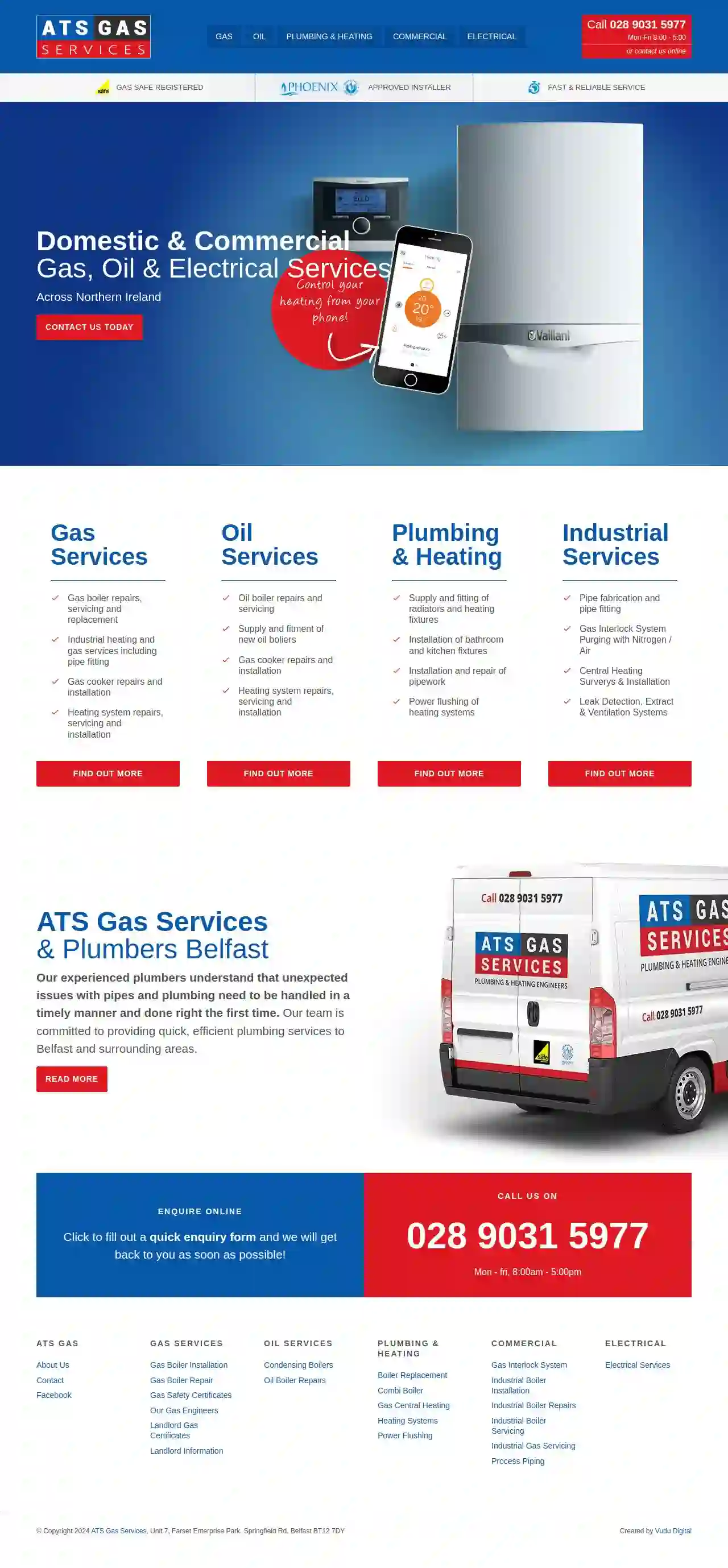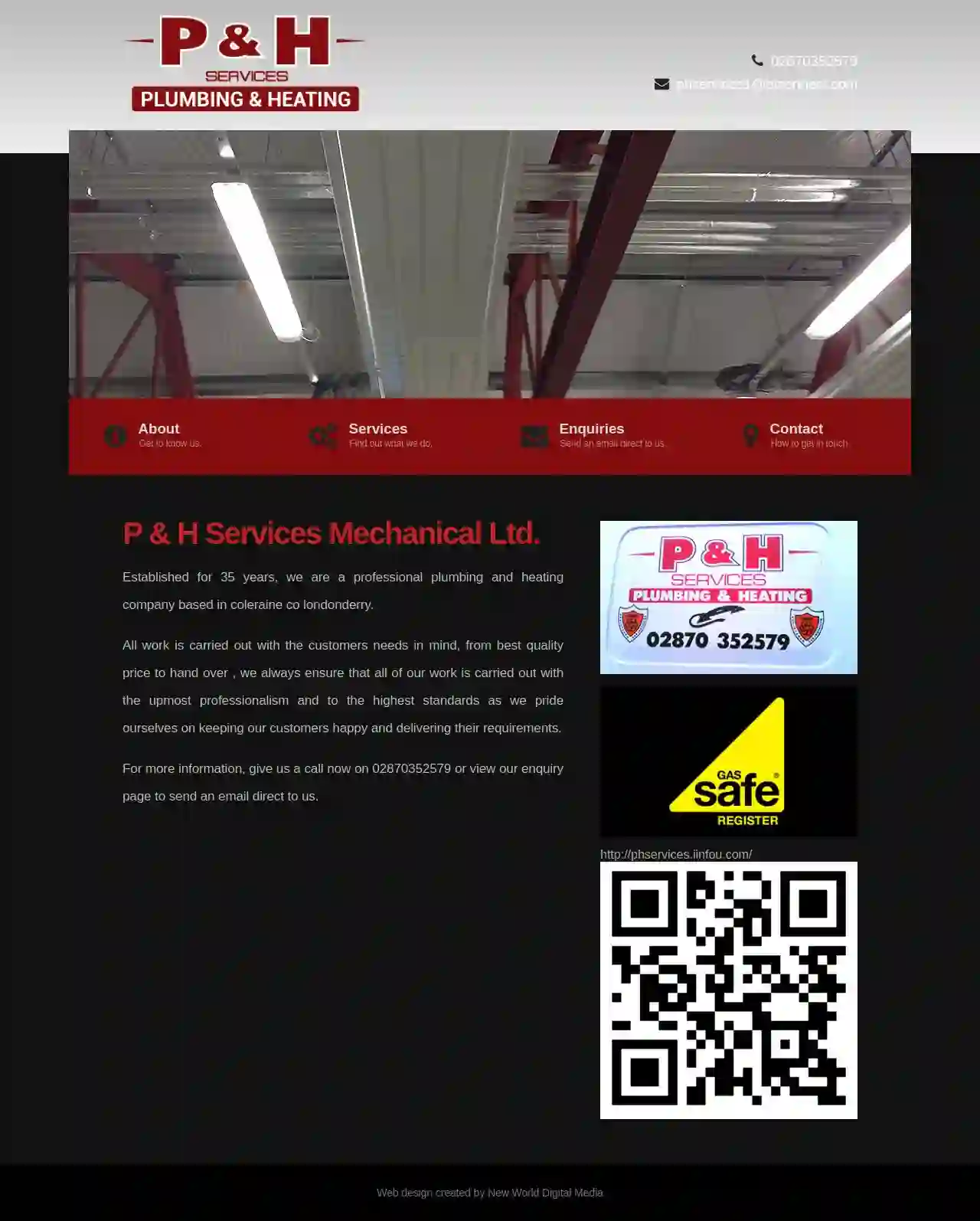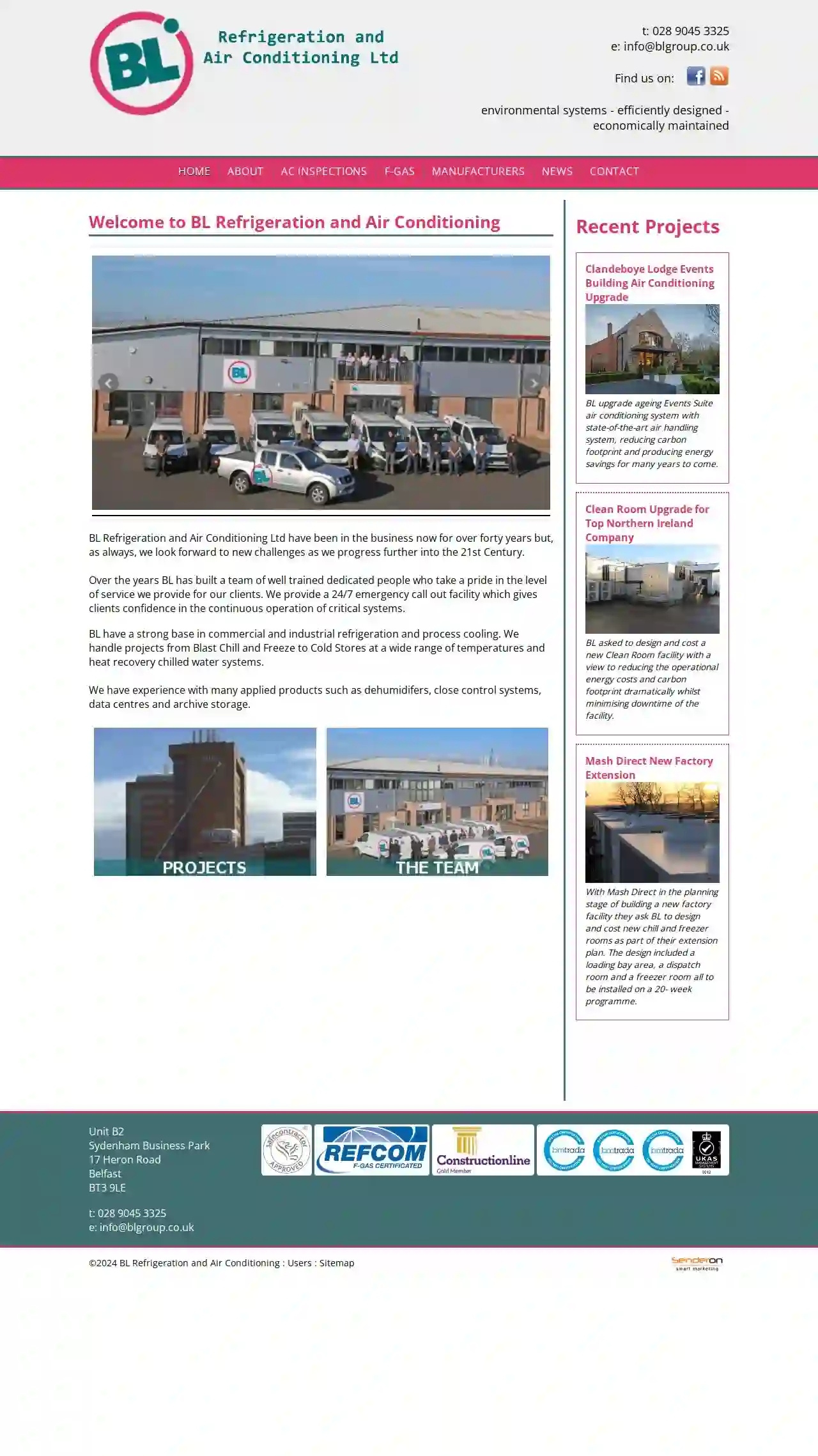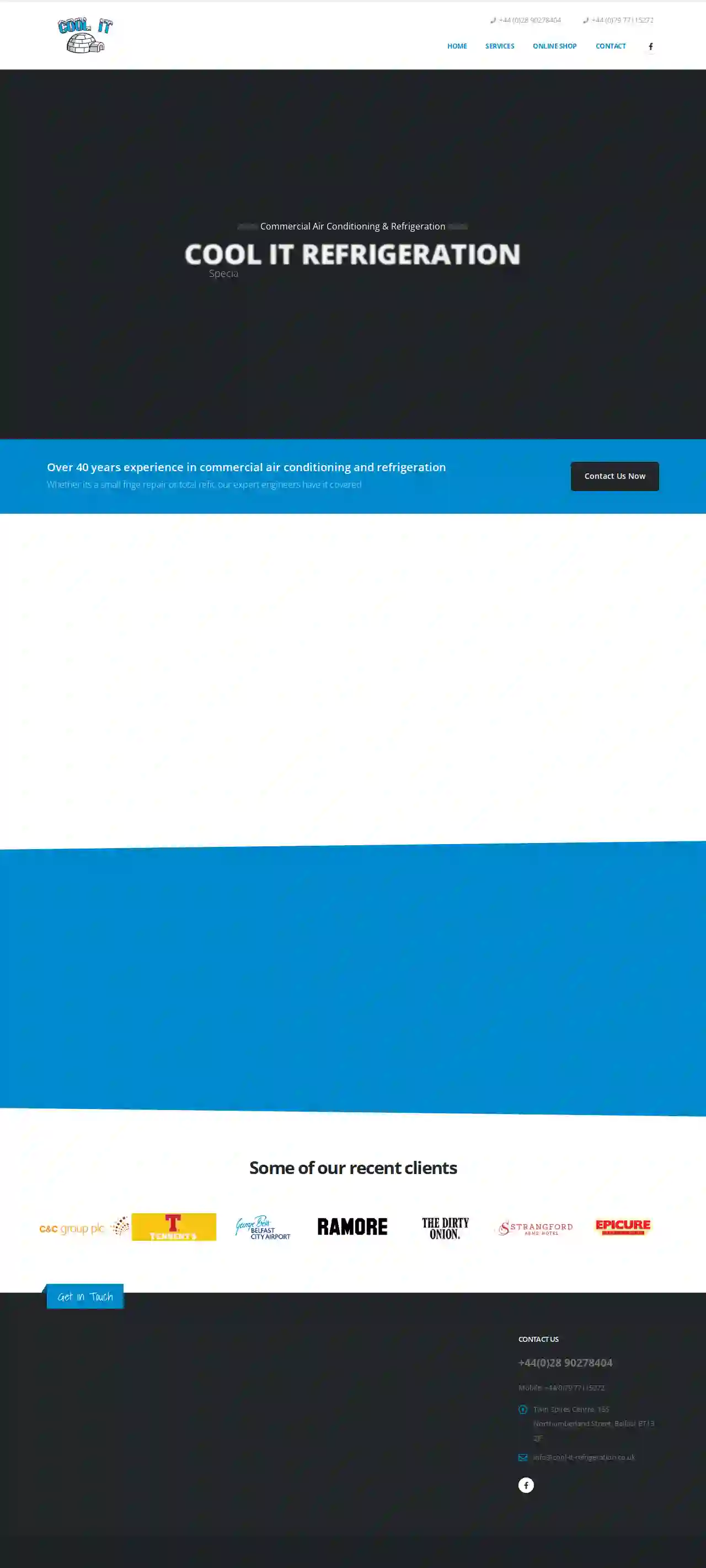AC Replacement Belfast
Best Air Conditioner Replacement in Belfast
Get up to 3 New AC Unit quotes for your project today! Compare profiles, reviews, accreditations, portfolio, etc... and choose the best deal.

Jamisons Gas & Electrical Centre
4.844 reviewsLisburn, BT282SA, GBWith decades of experience in the sale and installation of gas appliances, the team at Jamisons have all of the knowledge required to ensure you get the right appliance for your home. Buy gas and electric cookers, ovens, hobs, range style cookers, washing machines, fridge freezers, dishwashers and even gas tumble dryers online. Plus We have a range of gas fires, Broil King & Sahara gas BBQ’s & Gas Patio Heaters all competitively priced. Based in Lisburn, Northern Ireland, delivery to most of the UK & Ireland. In the area? Visit our new showroom at Ballinderry Business Park Lisburn BT282SA, where you can view a full range of gas & electrical appliances - Plus, get all of your gas refills, regulators, fittings & camping stoves etc - while you’re here. We’re open Mon to Fri 10 - 3 Call us on 028 9266 2044.
- Services
- Why Us?
- Gallery
Get Quote
ATS Gas Services - (Boiler Service Belfast | Boiler Repair Belfast | Gas Boiler Service Belfast | Oil Boiler Service Belfast)
3.836 reviewsUnit 7, Farset Enterprise Park, Springfield Rd, Belfast, BT12 7DY, GBATS Gas Services is a team of experienced plumbers and gas engineers serving domestic and commercial clients across Northern Ireland. We offer a comprehensive range of services, including gas boiler repairs, servicing and replacement, oil boiler repairs and servicing, heating system repairs and installation, gas cooker repairs and installation, and plumbing services such as leaking or burst pipe repairs, blocked drain removal, and emergency plumbing. We pride ourselves on providing fast, reliable, and affordable service with a commitment to customer satisfaction. Our Gas Safe Registered engineers are highly qualified and experienced, ensuring that all work is carried out to the highest standard.
- Services
- Why Us?
- Accreditations
- Gallery
Get Quote
ABM Ireland
GBABM (NYSE: ABM) is one of the world’s largest providers of facility services and solutions. A driving force for a cleaner, healthier, and more sustainable world, ABM provides essential services and forward-looking performance solutions that improve the spaces and places that matter most. From curbside to rooftop, ABM’s comprehensive services include janitorial, engineering, parking, electrical and lighting, energy and electric vehicle charging infrastructure, HVAC and mechanical, landscape and turf, and mission critical solutions. ABM serves a wide range of industries – from commercial office buildings to universities, airports, hospitals, data centers, manufacturing plants and distribution centers, entertainment venues and more. Founded in 1909, ABM serves over 20,000 clients, with annualized revenue approaching $8 billion and more than 100,000 team members in 350+ offices throughout the United States, United Kingdom, Republic of Ireland, and other international locations. For more information, visit www.abm.com.
- Services
- Why Us?
- Gallery
Get Quote
P & H Services
3.76 reviewsNewmills road, 24f Northbrook ind est, Coleraine, BT522JB, GBEstablished for 35 years, we are a professional plumbing and heating company based in Coleraine, Co Londonderry. All work is carried out with the customer's needs in mind, from best quality price to handover, we always ensure that all of our work is carried out with the upmost professionalism and to the highest standards as we pride ourselves on keeping our customers happy and delivering their requirements. For more information, give us a call now on 02870352579 or view our enquiry page to send an email direct to us.
- Services
- Why Us?
- Gallery
Get Quote
AK Services
3.318 reviewsBelfast, 43 Orby Gardens, BT5 5HS, GBAK Services is a leading heating and plumbing company in Belfast, Northern Ireland, with over 30 years of experience. We offer a wide range of services, including commercial and domestic heating, plumbing, and gas installations. Our team of expert engineers is Gas Safe registered and equipped to handle any job, from emergency boiler repairs to routine maintenance and installations. We pride ourselves on our fast and friendly service, and our commitment to providing the highest quality workmanship. With a reputation for reliability and expertise, AK Services is the go-to choice for homeowners and businesses in Belfast and beyond.
- Services
- Why Us?
- Accreditations
- Our Team
- Testimonials
- Gallery
Get Quote
AB Refrigeration & Air Conditioning Ltd
4.84 reviewsUnit 1, 15-17, Ballymoney Road, Ballymoney, BT13 3LU, GBAB Refrigeration & Air Conditioning Ltd is a leading provider of refrigeration and air conditioning solutions. With a rich history and a mission to deliver exceptional products and services, we have established ourselves as a trusted partner for businesses across various industries. Our team of experts has extensive experience in designing, installing, and maintaining refrigeration and air conditioning systems. We offer a wide range of products, including display freezers, display fridges, gelato cabinets, ice cream storage, ice machines, pastry/chocolate, remote, remote fridge cabinets, soft serve, spider fridges, storage freezers, and storage fridges. Whether you're a butcher, coffee shop, convenience store, deli counter, hot food outlet, ice cream retailer, or any other business, we have products that can cater to your specific needs. Contact us today to learn more about our products and services.
- Services
- Why Us?
- Accreditations
- Gallery
Get Quote
Belfast Boiler Installations
4.9128 reviewsBelfast, GBBelfast Boiler Installations is a family-run business with over 30 years of experience in providing top-quality boiler installations, replacements, and servicing. They are committed to delivering excellent service and ensuring customer satisfaction. The company specializes in both domestic and commercial boiler services, covering a wide range of areas in and around Belfast. They offer a 7-year FREE parts & FREE labour boiler warranty and pride themselves on being reliable, courteous, and respectful of their customers' time and property.
- Services
- Why Us?
- Testimonials
- Gallery
Get Quote
BL Refrigeration & Air Conditioning Ltd
4.25 reviewsSydenham Business Park, 17 Heron Road, Unit B2, Belfast, BT3 9LE, GBBL Refrigeration and Air Conditioning Ltd have been in the business now for over forty years. We look forward to new challenges as we progress further into the 21st Century. Over the years BL has built a team of well trained dedicated people who take a pride in the level of service we provide for our clients. We provide a 24/7 emergency call out facility which gives clients confidence in the continuous operation of critical systems. BL have a strong base in commercial and industrial refrigeration and process cooling. We handle projects from Blast Chill and Freeze to Cold Stores at a wide range of temperatures and heat recovery chilled water systems. We have experience with many applied products such as dehumidifers, close control systems, data centres and archive storage.
- Services
- Why Us?
- Our Team
- Gallery
Get Quote
Cool IT Refrigeration
3.919 reviews155 Northumberland Street, Twin Spires Centre, Belfast, BT13 2JF, GBCool IT Refrigeration is a family-owned business operating in Northern Ireland for over 40 years. We design, supply, install and service commercial air conditioning and refrigeration equipment. We take great pride in offering a personal service to meet the needs of all our customers at affordable prices. We can source refrigeration equipment for all commercial businesses from local shops to supermarkets and hotels. We provide a range of equipment from leading manufactures covering all budgets. We also provide servicing and emergency breakdown/repair for all types of commercial refrigeration and air conditioning equipment. Please give us a call on 028 90 27 8404 for a free quotation.
- Services
- Why Us?
- Gallery
Get Quote
BROOKVENT
4.243 reviewsBrook House, Dunmurry Industrial Estate, Dunmurry, Belfast, Co. Antrim, BT17 9HU, GBBrookvent is a leading provider of mechanical, heat recovery ventilation and window ventilation solutions in Northern Ireland, UK Mainland. With over 40 years of experience, we offer a wide range of products and services to meet the needs of our customers. Our team of experts is dedicated to providing the best possible solutions for our clients, and we are committed to delivering high-quality products and services that meet the highest standards.
- Services
- Why Us?
- Accreditations
- Gallery
Get Quote
Over 12,692+ HVAC Companies registered
Our HVAC experts operate in Belfast and surroundings!
HVACCompaniesHub has curated and vetted the Best HVAC Contractors near Belfast. Find a top & trustworthy contractor today.
Frequently Asked Questions about AC Replacement
- Central Air Conditioners: The most common type for whole-home cooling.
- Ductless Mini-Splits: Ideal for homes without ductwork, offering zoned cooling.
- Window Air Conditioners: An affordable option for cooling a single room.
- Portable Air Conditioners: Offer flexible cooling for rooms where a window unit is not practical.
- Heat Pumps: These systems extract heat from the air to provide both heating and cooling.
- Regular Maintenance: Annual or biannual tune-ups can significantly extend the life of your AC.
- Usage: Heavy use can shorten the lifespan.
- Climate: AC units in hotter, more humid climates tend to have shorter lifespans.
- Quality of Installation: A professional installation will typically have fewer problems.
- Quality of the Unit: Higher-quality AC units from reputable manufacturers are built to last longer.
- The size and type of AC unit: Larger, more complex systems will naturally require a longer installation.
- The condition of existing ductwork (if applicable): If your home has existing ductwork, the contractor will need to inspect it and ensure it's compatible with the new AC unit before installing the new unit.
- Accessibility: Easy access to your existing unit and the installation location will help speed up the job.
- Electrical work: If any electrical upgrades are required, the timeline may be longer.
What type of AC unit is best?
What is the average lifespan of a central air conditioner?
How long does it take to replace an AC unit?
What is an Energy Star certified AC unit?
What type of AC unit is best?
- Central Air Conditioners: These systems cool the entire home using a system of ductwork.
- Ductless Mini-Splits: These provide customized comfort by cooling individual rooms or zones.
- Window Air Conditioners: An affordable option for cooling a single room.
- Portable Air Conditioners: Portable units can be moved easily from room to room.
- Heat Pumps: Highly efficient for both heating and cooling.
What is the average lifespan of a central air conditioner?
- Regular Maintenance: Regularly scheduled maintenance can significantly extend the life of your AC.
- Usage: The more you run your AC unit, the faster it will wear out.
- Climate: AC units in hotter, more humid climates tend to have shorter lifespans.
- Quality of Installation: A professional installation will perform better and last longer.
- Quality of the Unit: More durable units generally have a longer lifespan.
How long does it take to replace an AC unit?
- The size and type of AC unit: Larger, more complex systems will naturally require a longer installation.
- The condition of existing ductwork (if applicable): If your home has existing ductwork, the contractor will need to inspect it and ensure it's compatible with the new AC unit before installing the new unit.
- Accessibility: The ease with which installers can access your HVAC equipment will help streamline the installation process.
- Electrical work: If any electrical upgrades are required, the timeline may be longer.